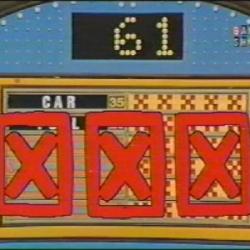Via Matt Yglesias I learn that the complete archives of Vogue magazine are now online.
Those who can afford it — the subscription apparently costs $1,575 a year — can access “every single page from every issue dating back to the magazine’s American debut in 1892.”
I mention this in the hopes that TV writers will pay attention and note that this makes Vogue astonishingly exceptional. The complete archives of most publications dating back to 1892 are not archived online. The complete archives of most publications dating back to 1992 are not online.
So if your story involves an eerie plot-point about the very same thing happening decades ago in the 1930s, or a spine-tingling reveal showing a photo of the suspect looking exactly the same in 1903, then your protagonists need to be looking at microfilm in a library, or at physical print issues in the stacks.
This actually helps. Picture your hero scrolling through old articles in the musty, subterranean archives of the old library, lit only by the dim glow of the microfilm machine and a flickering fluorescent bulb down the hallway. That’s bound to be much creepier than having her or him sitting at a comfortable desk somewhere surfing the Web on one of those sweet, cutting-edge MacBooks that seem to be the product-placement computer of choice even for TV characters who could never plausibly afford one.
And also, no, it won’t do to simply suggest that your super-geek sidekick has world-class hacking skills and therefore can access anything online. The world’s greatest hackers still can’t access newspaper archives that do not exist. Willow Rosenberg, Abby Sciuto, Penelope Garcia, Chloe O’Brian, Chloe Sullivan and the Lone Gunmen combined cannot hack their way into accessing something that is not there to be accessed.
I wish those newspaper archives did exist. I wish every local newspaper in the country were busily figuring out how to make their complete archives available online — even if only as .pdf scans. This would be invaluable to their communities, to historians, scholars, researchers and their own journalists.
And on a more personal note, if newspapers were doing this sort of thing, I might still have a job. Unfortunately, newspapers are not adding new personnel to manage the new task of their new online platform. Instead, the rise of the Internet has coincided with a drastic reduction in the number of people working for newspapers.
That means that for the vast majority of newspapers, online archives only go back to about 1994 at the earliest. That is, if they have any online archives at all — Gannett’s linkrot-ridden papers do not, their stories just disappear from the Web after three months. It also means that any story that can be found online was researched and edited by fewer people working far more quickly than those older stories on microfilm in the library, meaning that as a general rule, a newspaper story from 2009 is far less likely to be as reliable, comprehensive, penetrating or accurate as a newspaper story from 1979.
But that’s a larger, separate complaint. Here I just want to remind TV writers that, no, back issues of The Smalltown Gazette from the 1930s are not archived online.












